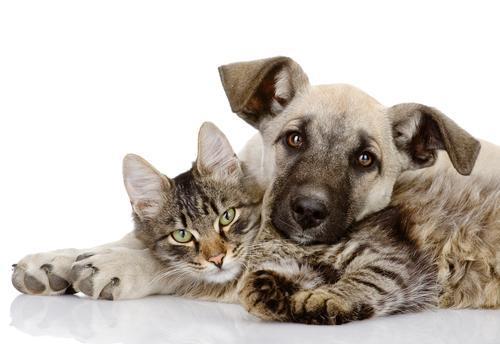Should You Consider a Pet Trust for Your Furry Companions?
 If you have started the process of estate planning, there is a good chance that you have spent some time thinking about how you will distribute your assets among your children, grandchildren, loved ones, and, possibly, charitable organizations. Depending on the size of your family or your circle of friends, it could be quite easy to overlook the pets that might be an important part of your life. Is it possible to look after companion animals like dogs or cats in your estate plan? In short, the answer to that question is yes.
If you have started the process of estate planning, there is a good chance that you have spent some time thinking about how you will distribute your assets among your children, grandchildren, loved ones, and, possibly, charitable organizations. Depending on the size of your family or your circle of friends, it could be quite easy to overlook the pets that might be an important part of your life. Is it possible to look after companion animals like dogs or cats in your estate plan? In short, the answer to that question is yes.
What Are Pet Trusts?
Under Illinois law, a person is permitted to create and fund a trust for the stated purpose of providing for the care of "one or more designated domestic or pet animals." The applicable part of the Illinois Trusts and Trustees Act (760 ILCS 5/15.2) does not specify the types of animals that can be covered, but a series of cases in Illinois courts have set precedents that allow pet trusts to cover dogs, cats, horses, and several other animals. Livestock, such as cows and sheep, are generally not eligible.
In order to establish a pet trust, you must specifically identify each animal to be cared for with funds owned by the trust. You will need to list the animal’s species and breed (if applicable), as well as its name, age, sex, and any other important factors like implanted microchips or tags. If your animal has any known health concerns, those should be noted as well so that the person you appoint to manage the trust-called the trustee-knows what to expect regarding the animal’s necessary care.
Maintaining Your Standards
The terms of your pet trust should direct your trustee to provide a level of care that is similar to what you have offered your animals. This means that you will need to specify your expectations. It is also important to select a trustee who is willing and able to carry out your wishes regarding your pets.
Your trust should also clarify the authority of your trustee or intended caregiver to give away or sell the animal under the right circumstances, which you have the right to determine. For example, assume you have asked your son to care for your beloved dog-who is great with small children-and a year after your death, your daughter with children of her own expresses interest in adopting the dog. Would your son have the legal authority to allow your daughter to adopt the dog without violating the terms of the trust?
Closing the Trust
A pet trust can only remain open for as long as at least one of the named animals is alive or under the care of the designated caregiver. After that point, any assets that remain in the trust will be distributed according to your advance directions. You could choose to give those assets to the caregiver as a token of gratitude for his or her devotion to your animals, or you could direct the assets elsewhere. Regardless of your intentions, they need to be included when trust is created to be sure that the trust can operate as intended.
Call a Lombard Trusts Attorney
For more information about pet trusts or any other estate planning instruments, contact a skilled DuPage County estate planning lawyer at A. Traub & Associates. Call 630-426-0196 for a confidential consultation with a member of our team today.












